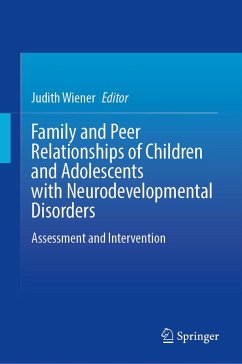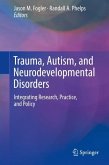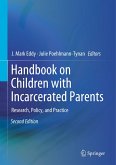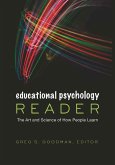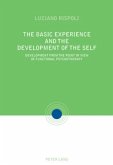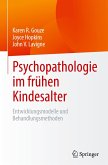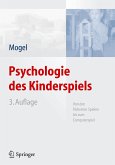This book examines family and peer relationships of children and adolescents with neurodevelopmental disorders (ND), including ADHD, learning disabilities, autism spectrum disorder, and intellectual developmental disorder (intellectual disabilities). It uses a transdiagnostic approach to describe how the difficulties ND youth have with self-regulation, adaptive skills, academic achievement, and social skills contribute to parenting stress, parent mental health challenges, and problematic family and peer relationships. The book reviews research detailing that youth with ND have challenges with mental health and are differentially susceptible to adverse environmental factors, such as negative parenting, peer rejection and victimization, stigma, and COVID-19. It offers innovative approaches for conducting assessments of the family system and peer environment that are based on risk and resilience research.
Key areas of coverage include:
Predictors of parenting stress and parent mental health, including their children s behaviors, parents coping strategies and social supports, culture, and stigma.Family and peer relationships as risk and protective factors for mental health and well-being of ND youth.Peer status, friendship, bullying, and romantic relationships of ND children and adolescents.Risk and protective factors associated with peer relations such as inclusive school environments and teacher attitudes and behaviors.
Family and Peer Relationships of Children and Adolescents with Neurodevelopmental Disorders is an essential reference for researchers, professors, graduate students as well as clinicians, therapists, and all related professionals in developmental, clinical child, and school psychology, neuropsychology, counseling, social work, special education, developmental disabilities, behavior therapy, speech and language therapy, occupational therapy, pediatrics, and child and adolescent psychiatry.
Key areas of coverage include:
Predictors of parenting stress and parent mental health, including their children s behaviors, parents coping strategies and social supports, culture, and stigma.Family and peer relationships as risk and protective factors for mental health and well-being of ND youth.Peer status, friendship, bullying, and romantic relationships of ND children and adolescents.Risk and protective factors associated with peer relations such as inclusive school environments and teacher attitudes and behaviors.
Family and Peer Relationships of Children and Adolescents with Neurodevelopmental Disorders is an essential reference for researchers, professors, graduate students as well as clinicians, therapists, and all related professionals in developmental, clinical child, and school psychology, neuropsychology, counseling, social work, special education, developmental disabilities, behavior therapy, speech and language therapy, occupational therapy, pediatrics, and child and adolescent psychiatry.

